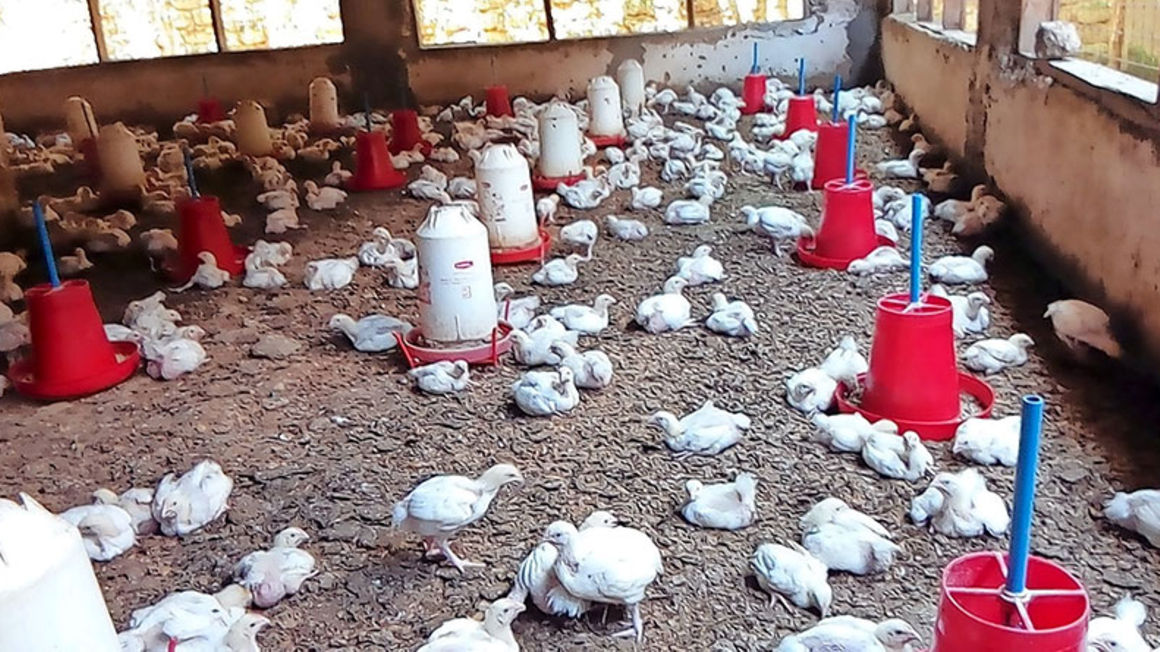In the serene countryside of Mwachema, nestled just 200 meters from the bustling Mombasa-Lunga Lunga Road in Kwale County, Kenya, lies a thriving half-acre poultry farm known as Tiwi Poultry Farm.
Here, Richard Kenei has harnessed his passion for poultry farming, turning a humble capital of Sh150,000 into a flourishing enterprise of at least 3,000 broiler birds.
The journey to Tiwi Poultry Farm began in 2013 when Richard Kenei took a leap of faith and bid farewell to his managerial position at Kenya Bixa Limited.
“This farm came after resigning from my previous work as a manager. I decided it was my time to do my own business,” Mr. Kenei recalls with a smile.
With a firm vision and determination, he invested his personal savings into the venture.
The initial capital was used to purchase 500 chicks and construct well-designed poultry houses that offered optimal living conditions for the birds. As time passed, the farm began to flourish, and Richard Kenei’s dream took flight.
Today, Tiwi Poultry Farm stands as a testament to Mr. Kenei’s commitment and hard work. The farm is teeming with over 1,000 week-old chicks, 1,000 three-week old chickens, and another 1,000 five-week old chickens, all ready for the market.
The success is visible in every corner of the farm, from the well-maintained coops to the bustling slaughterhouse and spacious storage facility that can accommodate up to 700 chickens.
One of the key factors that contributed to Tiwi Poultry Farm’s rapid growth was Richard Kenei’s keen business acumen. He diversified his income streams by catering to various markets.
Broilers are sold to hotels, restaurants, butcheries, and schools in the resort town of Diani at prices ranging between Sh350 and Sh400 per bird.
Additionally, Mr. Kenei tapped into the local community’s needs by providing by-products such as chicken legs and wings, which are popular among businesswomen and households.
Another smart move was selling organic manure, a highly sought-after product during rainy seasons when farmers eagerly purchase it to enrich their soils. The 50-kg bags of manure are priced at Sh70, and this thriving side business has further enhanced Mr. Kenei’s financial success.
With an average monthly income of at least Sh100,000 to Sh150,000, Richard Kenei’s decision to quit his job and venture into poultry farming has proven to be a fruitful one. He beams with pride, having achieved more than he ever imagined. However, for him, this journey has been about more than just personal success.
Having acquired years of experience in poultry farming, Mr. Kenei has become a mentor to those new in the business, especially those focusing on broilers.
He emphasizes the significance of conducting market research to avoid incurring losses and advocates for proper feeding and water supply for optimum yields.
When asked why he prefers broilers over layers, he confidently explains that broilers mature faster, allowing for quicker turnover, typically within five to six weeks.
This efficiency translates to more substantial financial returns compared to layers, which require extended periods of feeding before they become profitable.
As a man with a deep sense of community responsibility, Richard Kenei envisions a brighter future for both his farm and the people around him. He dreams of establishing a large-scale broiler farm in Kwale County with support from banks and organizations.
His ambitious plan involves training and encouraging more individuals in the community to embrace poultry farming, providing them with the resources and knowledge to succeed.
Through a contracted scheme for local farmers, Mr. Kenei believes they can collectively grow and supply poultry products to a broader market, creating employment opportunities and bolstering the local economy.
His aspiration to uplift his community exemplifies the true spirit of an entrepreneur with a vision that extends far beyond personal gain.
However, like every success story, Richard Kenei’s journey hasn’t been without challenges.
The primary hurdle he faces is prompt payment from buyers, particularly larger institutions, which often results in delayed income for many farmers in the industry. Nevertheless, his unwavering determination and shrewd business strategies have allowed him to overcome these obstacles and continue to grow stronger.

